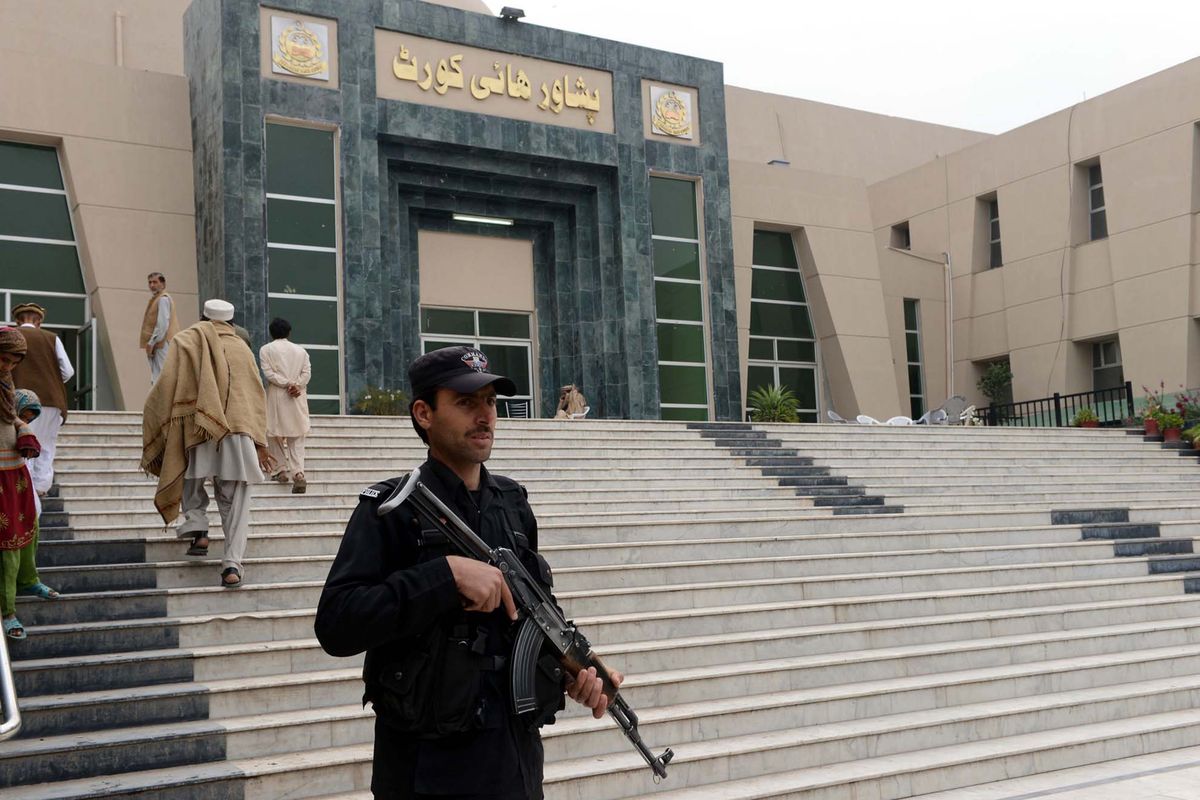Pakistani court annuls reserved seats allocation in KP, orders ECP to revise list
PHC halts oath-taking of KP lawmakers, says ECP miscounted seats and breached Constitution, Elections Act

Kamran Ali
Correspondent Nukta
Kamran Ali, a seasoned journalist from Khyber Pakhtunkhwa, Pakistan, has a decade of experience covering terrorism, human rights, politics, economy, climate change, culture, and sports. With an MS in Media Studies, he has worked across print, radio, TV, and digital media, producing investigative reports and co-hosting shows that highlight critical issues.

A Pakistani court on Tuesday annulled the electoral commission’s notification on reserved seats in the Khyber Pakhtunkhwa (KP) Assembly, ruling the allocation process as unconstitutional and unlawful.
The Peshawar High Court (PHC) also barred the swearing-in of lawmakers appointed to these seats. It ordered the Election Commission of Pakistan (ECP) to revise the allocations within 10 days, after consulting all political parties.
The ruling came in response to a petition by the Pakistan Muslim League-Nawaz (PML-N), the party leading the federal government. The party argued that it had been shortchanged in the allocation of reserved seats for women and minorities.
PML-N counsel Barrister Saqib Raza told the court that the ECP miscalculated the party’s strength in the KP Assembly, listing six lawmakers instead of seven. According to Raza, an independent lawmaker had joined the party within the legally allowed three-day period after the issuance of election results, but the ECP issued its notification a day early—excluding the new member from the count.
He said this misstep cost PML-N an additional women’s seat and a minority seat. Raza also argued that the Jamiat Ulema-e-Islam-Fazl (JUI-F), which had the same number of lawmakers in the KP Assembly as the PML-N, received 10 seats for women and two for minorities—an outcome he said violated constitutional principles and the Elections Act.
Raza asked the court to declare the ECP’s notification void. He said both PML-N and JUI-F should receive nine women’s seats and one minority seat each. The final minority seat, he proposed, could be allocated by a draw, due to the tie in party strength.
In its two-page written order, the court agreed that the ECP had acted outside its constitutional bounds. “The total number of seats won by political parties, including independent candidates who subsequently joined a party, should form the basis for calculating the allocation of reserved seats,” the ruling said.
The court said the ECP's cut-off date—set a day earlier than the legal deadline—was unlawful. It instructed the ECP to revise the reserved seat allocations in accordance with the Constitution and Elections Act, and to halt the oath-taking of members until the revised notification is issued.
The reserved seats saga
The dispute stems from Pakistan’s general elections in February 2024, when dozens of independent candidates backed by Imran Khan’s Pakistan Tehreek-e-Insaf (PTI) joined the Sunni Ittehad Council (SIC) to form a bloc in parliament.
Initially, the ECP denied SIC any reserved seats, citing its failure to submit a priority list before the elections. That decision was upheld by the PHC but later overturned by the Supreme Court in July. The top court ruled that SIC was entitled to reserved seats through the 39 independents who joined it, calling it “a reflection of the people’s will.”
However, the verdict was never implemented. Following review petitions by the ECP, PML-N, and Pakistan Peoples Party (PPP), a full Supreme Court bench reversed the ruling, declaring SIC ineligible for reserved seats. The ruling returned the seats to PML-N, PPP, and JUI-F. The court proceedings drew controversy, including the recusal of three justices.
Following that ruling, a fresh challenge to the allocation of reserved seats in the KP Assembly was filed by PML-N, the Awami National Party (ANP), and Pakistan Tehreek-e-Insaf Parliamentarians (PTIP)—a breakaway faction of Imran Khan’s party. The challenge led to the PHC’s annulment of the ECP’s notification.
The court’s order has further delayed the final composition of the KP Assembly, where no party holds a clear majority.










Comments
See what people are discussing